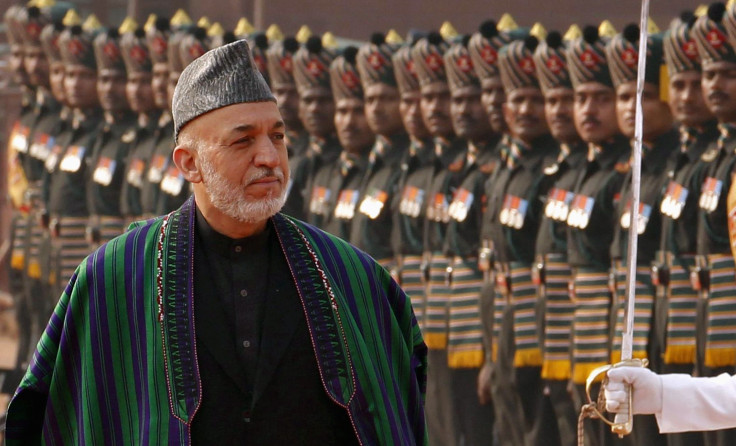Afghan President Hamid Karzai’s India Visit: Defense Equipment A Priority, While India Hesitant To Provoke Regional Players, US

Afghan President Hamid Karzai is expected to renew a request to the Indian government for the supply of defense equipment when he visits India this week, in a move that could put New Delhi in a tough spot as several stakeholders in the region, including the U.S. and Pakistan, may find such a partnership undesirable.
India and Afghanistan had signed a strategic partnership agreement in October 2011 -- the first such agreement that Afghanistan has formally entered into with any country -- to reconstruct Afghanistan, but New Delhi has been evading Kabul’s requests to fulfill the agreement's terms, which state that India will assist Afghanistan in training and equipping Afghan security forces.
“I think it is high time for New Delhi to take a call,” Vivek Katju, India’s former ambassador to Afghanistan, told The Hindu newspaper. “Procrastinating on a request for help from a friend in need sends an awful message.”
Afghanistan is expected to renew a request for light-towed howitzers, AN-32 light military aircraft and Mi-17 helicopters, The Hindu reported, citing Afghan sources. As of now, India has agreed to supply two Cheetah light helicopters to be delivered in May 2014, according to The Hindu.
India has so far poured $2 billion into military training and development projects in Afghanistan, but has been holding back on lethal aid for fear of antagonizing Pakistan, as well as armed groups in Afghanistan.
The U.S., in the past, has underscored Pakistan’s concerns over India’s role in Afghanistan, saying it’s “not groundless” for Islamabad to accuse New Delhi of stirring trouble near Pakistan’s shared border with Afghanistan through its consular presence in Afghan cities. India has always denied Pakistan’s accusation saying its interest in Afghanistan is limited only to trade and development.
“The dominant infiltration of militants is from Pakistan into Afghanistan, but we recognize that there is some infiltration of hostile militants from the other direction as well," U.S. Special Envoy James Dobbins told BBC in August. “So Pakistan's concerns aren't groundless… They are simply, in our judgment, somewhat exaggerated.”
Karzai will meet with Indian Prime Minister Manmohan Singh on Friday as the region braces for the withdrawal of NATO forces from Afghanistan in 2014.
On Sunday, during Karzai’s visit to Tehran, Afghanistan and Iran reached a cooperation agreement, which his spokesperson described as a pact for “long-term political, security, economic and cultural cooperation, regional peace and security,” according to Reuters.
Meanwhile, a security pact to determine the presence of residual U.S. troops in Afghanistan after NATO's withdrawal remains elusive, as Karzai wants to delay it until after Afghanistan’s presidential election next April. And, if a security arrangement cannot be agreed on before a new deadline set for February, the U.S. may withdraw all its forces by the end of 2014, leading to a security vacuum that could favor insurgents.
© Copyright IBTimes 2024. All rights reserved.












